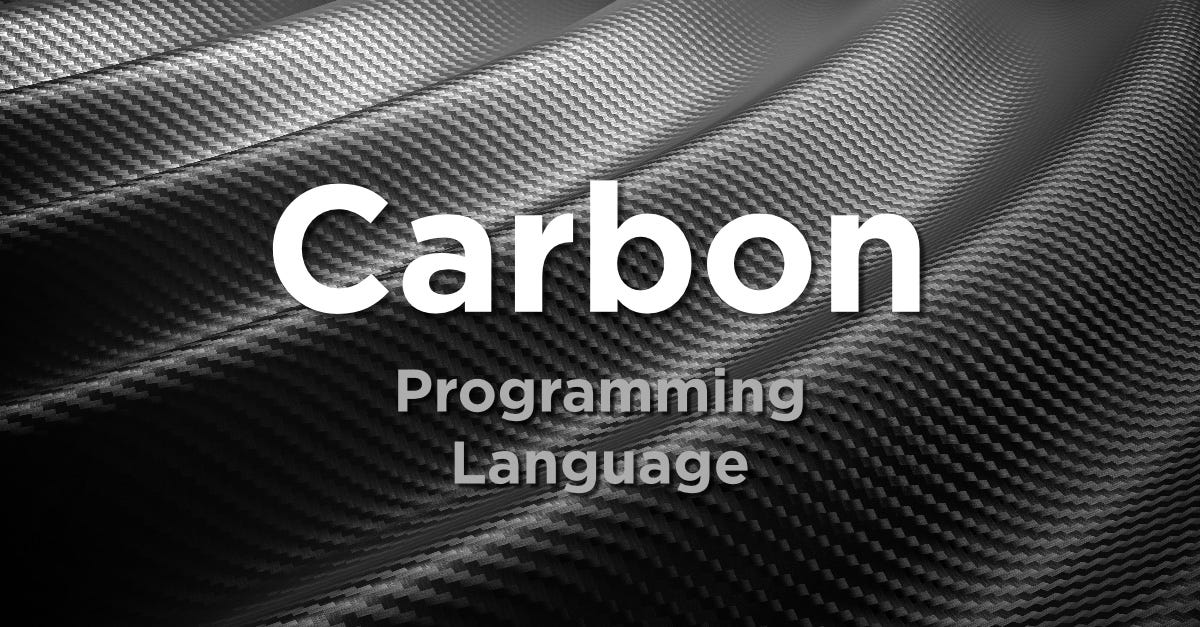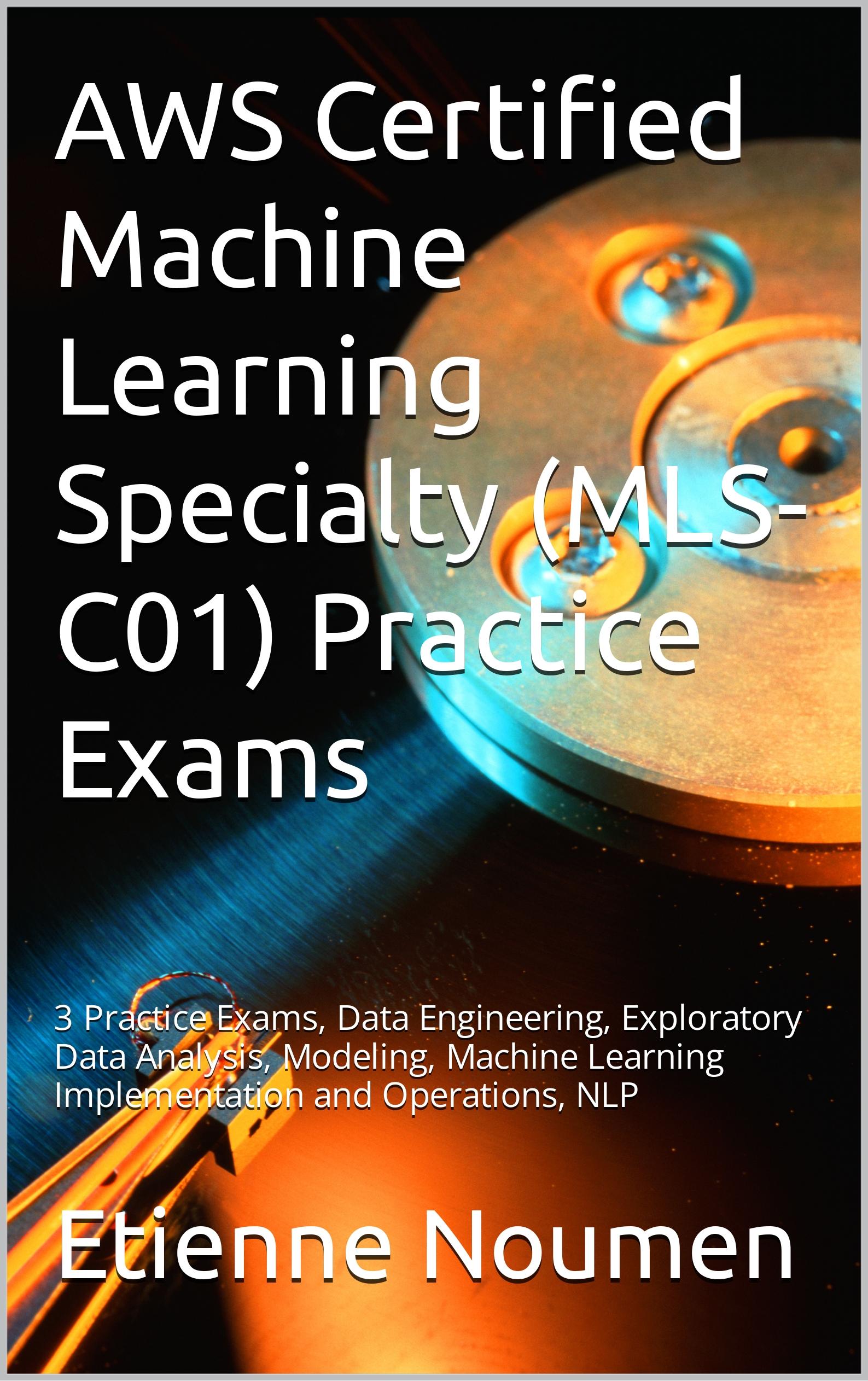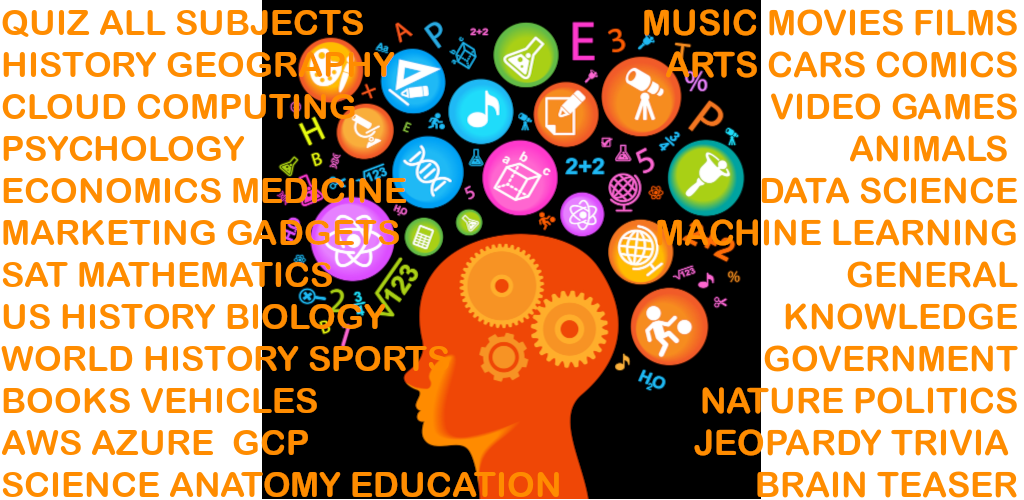Is Google’s Carbon Programming language the Right Successor to C++?
For years, C++ has been the go-to language for high-performance systems programming. But with the rise of multicore processors and GPUs, the need for a language that can take advantage of parallelism has never been greater. Enter Carbon, Google’s answer to the problem. But is it the right successor to C++?
Google has been in the news a lot lately for their new programming language, Carbon. It’s being billed as the successor to C++, but is it really? Let’s take a closer look.

On the surface, Carbon and C++ have a lot in common. They’re both statically typed, object-oriented languages with a focus on performance. They both have a learning curve, but once you know them, you can write code that is both readable and maintainable. However, there are some key differences that make Carbon a more attractive option for modern programmers.
For one, Carbon is garbage collected. This means that you don’t have to worry about manually managing memory, which can be a pain in C++. Carbon also has better support for concurrency than C++. With the rise of multicore processors, this is an important consideration. Finally, Carbon has a more modern standard library than C++. This includes features like string interpolation and pattern matching that make common tasks easier to accomplish.
According to Terry Lambert, Carbon Programming language is probably not the successor of C++. His reason are:
“Single inheritance is a deal-breaker for me, even though the eC++ utilized by IOKit in macOS and iOS has the same restrictions.
Although it specifies stronger type enforcement, which would — in theory — also eliminate RTTI and the reflection, which eC++ has historically eliminated as well, it’s doing it via expression-defined typing, rather than explicitly eliminating it. I expect that it would also prevent use of dynamic_cast, although that’s not explicitly called out.
Let’s see if Linus approves of someone compiling the Linux kernel with Carbon, and then starting to add Carbon syntax code, into that port of Linux.”
On the surface, Carbon seems like a great choice to replace C++. It is designed to be more reliable and easier to use than C++. In addition, it is faster and can be used for a variety of applications. However, there are some drawbacks to using Carbon. First, it is not compatible with all operating systems. Second, it does not have all of the features of C++. Third, it is not as widely used as C++. Finally, it is still in development and has not been released yet.
These drawbacks may seem like deal breakers, but they don’t necessarily mean that Carbon is not the right successor to C++. First, while Carbon is not compatible with all operating systems, it is compatible with the most popular ones. Second, while it does not have all of the features of C++, it has the most important ones. Third, while it is not as widely used as C++, it is gaining popularity rapidly. Finally, while it is still in development, it is expected to be released soon.
What Is Carbon?
Carbon is a statically typed systems programming language developed by Google. It is based on C++ and shares a similar syntax. However, Carbon introduces several new features that make it better suited for parallelism. For example, Carbon provides first-class support for threads and synchronization primitives. It also offers a number of built-in data structures that are designed for concurrent access. Finally, Carbon comes with a toolchain that makes it easy to build and debug parallel programs.
Why Was Carbon Created?
Google’s primary motivation for developing Carbon was to improve the performance of its search engine. To do this, they needed a language that could take advantage of multicore processors and GPUs. C++ was not well suited for this purpose because it lacked support for threading and synchronization. As a result, Google decided to create their own language that would be purpose-built for parallelism.
Is Carbon The Right Successor To C++?
In many ways, yes. Carbon addresses many of the shortcomings of C++ when it comes to parallelism. However, there are some drawbacks. First, Carbon is still in its infancy and lacks many of the features and libraries that have made C++ so popular over the years. Second, because it is designed specifically for parallelism, it may be less suitable for other purposes such as embedded systems programming or network programming. Overall, though, Carbon looks like a promising successor to C++ and is worth keeping an eye on in the future.
Conclusion:
So, is Google’s new Carbon programming language the right successor to C++? We think that Google’s Carbon programming language has the potential to be a great successor to C++.
With its garbage collection, better support for concurrency, and modern standard library, Carbon has everything that today’s programmer needs.
It is designed to be more reliable and easier to use than its predecessor. In addition, it is faster and can be used for a variety of applications. However, there are some drawbacks to using Carbon that should be considered before making the switch from C++.
So if you’re looking for a new language to learn, we recommend giving Carbon a try.
Programming paradigms 2022-2023
Programming paradigms are a way to classify programming languages based on their features. Languages can be classified into multiple paradigms.
Some paradigms are concerned mainly with implications for the execution model of the language, such as allowing side effects, or whether the sequence of operations is defined by the execution model. Other paradigms are concerned mainly with the way that code is organized, such as grouping a code into units along with the state that is modified by the code. Yet others are concerned mainly with the style of syntax and grammar.
Common programming paradigms include:
- imperative in which the programmer instructs the machine how to change its state,
- procedural which groups instructions into procedures,
- object-oriented which groups instructions with the part of the state they operate on,
- declarative in which the programmer merely declares properties of the desired result, but not how to compute it
- functional in which the desired result is declared as the value of a series of function applications,
- logic in which the desired result is declared as the answer to a question about a system of facts and rules,
- mathematical in which the desired result is declared as the solution of an optimization problem
- reactive in which the desired result is declared with data streams and the propagation of change
Six programming paradigms that will change how you think about coding
Practice Carbon Programming Language at Hackerrank or LeetCode or FreeCodeCamp
Leetcode and HackerRank coding tests don’t work in developer interviews.
Here’s the proof:
Research has shown that work sample tests are VERY effective at determining if someone will we a good fit for a job. But here’s the problem: Work sample tests require applicants to perform tasks or work activities that mirror the tasks employees perform on the job.
When was the last time you had to “reverse an integer” or “find the longest substring without repeating characters”. These types of tests don’t mirror the tasks that software developers perform on the job.
It’s like testing an architect by having them build a house out of playing cards. Leetcode problems are just brain teasers.
If you want to administer a work sample test, have them do a code review, build a tiny feature in your product, or read and explain some part of your product code. (Every developer knows 90% of your time is spent reading code.)
Developers are tired of Leetcode interviews. It’s time to stop wasting everyone’s time.
Malbolge 2022 2023

Advertise with us - Post Your Good Content Here
We are ranked in the Top 20 on Google
AI Dashboard is available on the Web, Apple, Google, and Microsoft, PRO version
RegEx is just Malbolge for Strings:

What is the hardest programming language? For me, I say C++, C, and Malbolge. Out of all of these, Malbolge is the hardest
Replit Mobile App: Code on Android and iOS.
Z-Library. The world’s largest ebook library
Top 50 Programming Languages Ranked by the Number of Influenced Languages
Programming Breaking News and Quiz
- JSNation 2024 Sessions Now Available Onlineby /u/pmz (programming) on July 26, 2024 at 6:53 pm
submitted by /u/pmz [link] [comments]
- Why Postgres and DuckDB for Analyticsby /u/craig081785 (programming) on July 26, 2024 at 6:31 pm
submitted by /u/craig081785 [link] [comments]
- (My Story) Joining a greenfield software project (Part 1)by /u/djfreedom9505 (programming) on July 26, 2024 at 6:20 pm
submitted by /u/djfreedom9505 [link] [comments]
- Crafting Interpreters with Rust: On Garbage Collectionby /u/UnclHoe (programming) on July 26, 2024 at 6:04 pm
submitted by /u/UnclHoe [link] [comments]
- Connection avalanche safety tips and prepping for real-time applicationsby /u/alexeyr (programming) on July 26, 2024 at 4:54 pm
submitted by /u/alexeyr [link] [comments]
- Recapping the first Local‑First conferenceby /u/alexeyr (programming) on July 26, 2024 at 4:35 pm
submitted by /u/alexeyr [link] [comments]
- Applied Machine Learning for Tabular Databy /u/BrewedDoritos (programming) on July 26, 2024 at 4:31 pm
submitted by /u/BrewedDoritos [link] [comments]
- What is Response Mapping in API Integration?by /u/itsrorymurphy (programming) on July 26, 2024 at 4:02 pm
submitted by /u/itsrorymurphy [link] [comments]
- Organizations shift away from Oracle Java as pricing changes biteby /u/Franco1875 (programming) on July 26, 2024 at 3:44 pm
submitted by /u/Franco1875 [link] [comments]
- Node.js adds experimental TypeScript support, as it 'simply cannot be ignored' • DEVCLASSby /u/stronghup (programming) on July 26, 2024 at 3:42 pm
submitted by /u/stronghup [link] [comments]
- Announcing TypeScript 5.6 Betaby /u/DanielRosenwasser (programming) on July 26, 2024 at 2:11 pm
submitted by /u/DanielRosenwasser [link] [comments]
- Approximate nearest neighbor search with DiskANN in libSQLby /u/avinassh (programming) on July 26, 2024 at 1:48 pm
submitted by /u/avinassh [link] [comments]
- Web-Check - A free All-in-one OSINT tool for analysing any website.by /u/brucebaird (programming) on July 26, 2024 at 1:10 pm
submitted by /u/brucebaird [link] [comments]
- Mpokket loan customer care number✍️//* 8144933033/**/8144933033 Just Call nowby hotagi (Programming on Medium) on July 26, 2024 at 12:46 pm
Mpokket loan customer care number✍️//* 8144933033/**/8144933033 Just Call now Continue reading on Medium »
- Laxman loan app Customer Care Helpline Number➕%7569714050 ➕7569714050➕7569714050 Call Now Me.Laxmanby Hhghg (Programming on Medium) on July 26, 2024 at 12:46 pm
Continue reading on Medium »
- A Python Epoch Timestamp Timezone Trapby /u/stackoverflooooooow (programming) on July 26, 2024 at 12:41 pm
submitted by /u/stackoverflooooooow [link] [comments]
- RB 'loan.app customer care helpline number-/* 7569714050/*-*7569714050//*all call.RBby Rhjiigd (Programming on Medium) on July 26, 2024 at 12:41 pm
Continue reading on Medium »
- RB 'loan.app customer care helpline number-/* 7569714050/*-*7569714050//*all call.RBby Rhjiigd (Programming on Medium) on July 26, 2024 at 12:40 pm
Continue reading on Medium »
- What’s the difference between monolithic and microservices architecture?by Gantasofttraining (Programming on Medium) on July 26, 2024 at 12:36 pm
Continue reading on Medium »
- RB 'loan.app customer care helpline number-/* 7569714050/*-*7569714050//*all call.RBby BG Hui (Programming on Medium) on July 26, 2024 at 12:32 pm
Continue reading on Medium »
What are the Greenest or Least Environmentally Friendly Programming Languages?
How do we know that the Top 3 Voice Recognition Devices like Siri Alexa and Ok Google are not spying on us?
What are popular hobbies among Software Engineers?
Active Hydrating Toner, Anti-Aging Replenishing Advanced Face Moisturizer, with Vitamins A, C, E & Natural Botanicals to Promote Skin Balance & Collagen Production, 6.7 Fl Oz


Age Defying 0.3% Retinol Serum, Anti-Aging Dark Spot Remover for Face, Fine Lines & Wrinkle Pore Minimizer, with Vitamin E & Natural Botanicals


Firming Moisturizer, Advanced Hydrating Facial Replenishing Cream, with Hyaluronic Acid, Resveratrol & Natural Botanicals to Restore Skin's Strength, Radiance, and Resilience, 1.75 Oz

Skin Stem Cell Serum


Smartphone 101 - Pick a smartphone for me - android or iOS - Apple iPhone or Samsung Galaxy or Huawei or Xaomi or Google Pixel
Can AI Really Predict Lottery Results? We Asked an Expert.

Djamgatech

Read Photos and PDFs Aloud for me iOS
Read Photos and PDFs Aloud for me android
Read Photos and PDFs Aloud For me Windows 10/11
Read Photos and PDFs Aloud For Amazon
Get 20% off Google Workspace (Google Meet) Business Plan (AMERICAS): M9HNXHX3WC9H7YE (Email us for more)
Get 20% off Google Google Workspace (Google Meet) Standard Plan with the following codes: 96DRHDRA9J7GTN6(Email us for more)
FREE 10000+ Quiz Trivia and and Brain Teasers for All Topics including Cloud Computing, General Knowledge, History, Television, Music, Art, Science, Movies, Films, US History, Soccer Football, World Cup, Data Science, Machine Learning, Geography, etc....

List of Freely available programming books - What is the single most influential book every Programmers should read
- Bjarne Stroustrup - The C++ Programming Language
- Brian W. Kernighan, Rob Pike - The Practice of Programming
- Donald Knuth - The Art of Computer Programming
- Ellen Ullman - Close to the Machine
- Ellis Horowitz - Fundamentals of Computer Algorithms
- Eric Raymond - The Art of Unix Programming
- Gerald M. Weinberg - The Psychology of Computer Programming
- James Gosling - The Java Programming Language
- Joel Spolsky - The Best Software Writing I
- Keith Curtis - After the Software Wars
- Richard M. Stallman - Free Software, Free Society
- Richard P. Gabriel - Patterns of Software
- Richard P. Gabriel - Innovation Happens Elsewhere
- Code Complete (2nd edition) by Steve McConnell
- The Pragmatic Programmer
- Structure and Interpretation of Computer Programs
- The C Programming Language by Kernighan and Ritchie
- Introduction to Algorithms by Cormen, Leiserson, Rivest & Stein
- Design Patterns by the Gang of Four
- Refactoring: Improving the Design of Existing Code
- The Mythical Man Month
- The Art of Computer Programming by Donald Knuth
- Compilers: Principles, Techniques and Tools by Alfred V. Aho, Ravi Sethi and Jeffrey D. Ullman
- Gödel, Escher, Bach by Douglas Hofstadter
- Clean Code: A Handbook of Agile Software Craftsmanship by Robert C. Martin
- Effective C++
- More Effective C++
- CODE by Charles Petzold
- Programming Pearls by Jon Bentley
- Working Effectively with Legacy Code by Michael C. Feathers
- Peopleware by Demarco and Lister
- Coders at Work by Peter Seibel
- Surely You're Joking, Mr. Feynman!
- Effective Java 2nd edition
- Patterns of Enterprise Application Architecture by Martin Fowler
- The Little Schemer
- The Seasoned Schemer
- Why's (Poignant) Guide to Ruby
- The Inmates Are Running The Asylum: Why High Tech Products Drive Us Crazy and How to Restore the Sanity
- The Art of Unix Programming
- Test-Driven Development: By Example by Kent Beck
- Practices of an Agile Developer
- Don't Make Me Think
- Agile Software Development, Principles, Patterns, and Practices by Robert C. Martin
- Domain Driven Designs by Eric Evans
- The Design of Everyday Things by Donald Norman
- Modern C++ Design by Andrei Alexandrescu
- Best Software Writing I by Joel Spolsky
- The Practice of Programming by Kernighan and Pike
- Pragmatic Thinking and Learning: Refactor Your Wetware by Andy Hunt
- Software Estimation: Demystifying the Black Art by Steve McConnel
- The Passionate Programmer (My Job Went To India) by Chad Fowler
- Hackers: Heroes of the Computer Revolution
- Algorithms + Data Structures = Programs
- Writing Solid Code
- JavaScript - The Good Parts
- Getting Real by 37 Signals
- Foundations of Programming by Karl Seguin
- Computer Graphics: Principles and Practice in C (2nd Edition)
- Thinking in Java by Bruce Eckel
- The Elements of Computing Systems
- Refactoring to Patterns by Joshua Kerievsky
- Modern Operating Systems by Andrew S. Tanenbaum
- The Annotated Turing
- Things That Make Us Smart by Donald Norman
- The Timeless Way of Building by Christopher Alexander
- The Deadline: A Novel About Project Management by Tom DeMarco
- The C++ Programming Language (3rd edition) by Stroustrup
- Patterns of Enterprise Application Architecture
- Computer Systems - A Programmer's Perspective
- Agile Principles, Patterns, and Practices in C# by Robert C. Martin
- Growing Object-Oriented Software, Guided by Tests
- Framework Design Guidelines by Brad Abrams
- Object Thinking by Dr. David West
- Advanced Programming in the UNIX Environment by W. Richard Stevens
- Hackers and Painters: Big Ideas from the Computer Age
- The Soul of a New Machine by Tracy Kidder
- CLR via C# by Jeffrey Richter
- The Timeless Way of Building by Christopher Alexander
- Design Patterns in C# by Steve Metsker
- Alice in Wonderland by Lewis Carol
- Zen and the Art of Motorcycle Maintenance by Robert M. Pirsig
- About Face - The Essentials of Interaction Design
- Here Comes Everybody: The Power of Organizing Without Organizations by Clay Shirky
- The Tao of Programming
- Computational Beauty of Nature
- Writing Solid Code by Steve Maguire
- Philip and Alex's Guide to Web Publishing
- Object-Oriented Analysis and Design with Applications by Grady Booch
- Effective Java by Joshua Bloch
- Computability by N. J. Cutland
- Masterminds of Programming
- The Tao Te Ching
- The Productive Programmer
- The Art of Deception by Kevin Mitnick
- The Career Programmer: Guerilla Tactics for an Imperfect World by Christopher Duncan
- Paradigms of Artificial Intelligence Programming: Case studies in Common Lisp
- Masters of Doom
- Pragmatic Unit Testing in C# with NUnit by Andy Hunt and Dave Thomas with Matt Hargett
- How To Solve It by George Polya
- The Alchemist by Paulo Coelho
- Smalltalk-80: The Language and its Implementation
- Writing Secure Code (2nd Edition) by Michael Howard
- Introduction to Functional Programming by Philip Wadler and Richard Bird
- No Bugs! by David Thielen
- Rework by Jason Freid and DHH
- JUnit in Action
#BlackOwned #BlackEntrepreneurs #BlackBuniness #AWSCertified #AWSCloudPractitioner #AWSCertification #AWSCLFC02 #CloudComputing #AWSStudyGuide #AWSTraining #AWSCareer #AWSExamPrep #AWSCommunity #AWSEducation #AWSBasics #AWSCertified #AWSMachineLearning #AWSCertification #AWSSpecialty #MachineLearning #AWSStudyGuide #CloudComputing #DataScience #AWSCertified #AWSSolutionsArchitect #AWSArchitectAssociate #AWSCertification #AWSStudyGuide #CloudComputing #AWSArchitecture #AWSTraining #AWSCareer #AWSExamPrep #AWSCommunity #AWSEducation #AzureFundamentals #AZ900 #MicrosoftAzure #ITCertification #CertificationPrep #StudyMaterials #TechLearning #MicrosoftCertified #AzureCertification #TechBooks
Top 1000 Canada Quiz and trivia: CANADA CITIZENSHIP TEST- HISTORY - GEOGRAPHY - GOVERNMENT- CULTURE - PEOPLE - LANGUAGES - TRAVEL - WILDLIFE - HOCKEY - TOURISM - SCENERIES - ARTS - DATA VISUALIZATION

Top 1000 Africa Quiz and trivia: HISTORY - GEOGRAPHY - WILDLIFE - CULTURE - PEOPLE - LANGUAGES - TRAVEL - TOURISM - SCENERIES - ARTS - DATA VISUALIZATION

Exploring the Pros and Cons of Visiting All Provinces and Territories in Canada.

Exploring the Advantages and Disadvantages of Visiting All 50 States in the USA

Health Health, a science-based community to discuss health news and the coronavirus (COVID-19) pandemic
- The pull-out method: Why this common contraceptive fails to deliverby /u/Kampala_Dispatch on July 26, 2024 at 7:51 pm
submitted by /u/Kampala_Dispatch [link] [comments]
- Health Canada data reveals surprising number of adverse cannabis reactions (spoiler: it's small)by /u/carajuana_readit on July 26, 2024 at 5:49 pm
submitted by /u/carajuana_readit [link] [comments]
- Online portals deliver scary health news before doctors can weigh inby /u/washingtonpost on July 26, 2024 at 4:37 pm
submitted by /u/washingtonpost [link] [comments]
- Vaccine 'sharply cuts risk of dementia' new study findsby /u/SubstantialSnow7114 on July 26, 2024 at 1:53 pm
submitted by /u/SubstantialSnow7114 [link] [comments]
- Calls to limit sexual partners as mpox makes a resurgence in Australiaby /u/boppinmule on July 26, 2024 at 12:31 pm
submitted by /u/boppinmule [link] [comments]
Today I Learned (TIL) You learn something new every day; what did you learn today? Submit interesting and specific facts about something that you just found out here.
- TIL that in Thailand, if your spouse cheats on you, you can legally sue their lover for damages and can receive up to 5,000,000 THB ($140,000 USD) or more under Section 1523 of the Thai Civil and Commercial Codeby /u/Mavrokordato on July 26, 2024 at 6:57 pm
submitted by /u/Mavrokordato [link] [comments]
- TIL that with a population of 170 million people, Bangladesh is the most populous country to have never won a medal at the Olympic Games.by /u/Blackraven2007 on July 26, 2024 at 6:49 pm
submitted by /u/Blackraven2007 [link] [comments]
- TIL a psychologist got himself admitted to a mental hospital by claiming he heard the words "empty", "hollow" and "thud" in his head. Then, it took him two months to convince them he was sane, after agreeing he was insane and accepting medication.by /u/Hadeverse-050 on July 26, 2024 at 6:44 pm
submitted by /u/Hadeverse-050 [link] [comments]
- TIL Senator John Edwards of NC, USA cheated on his wife and had a child with another woman. He tried to deny it but eventually caved and admitted his mistake. He used campaign funds and was indicted by a grand jury. His life story inspired the show "The Good Wife" by Robert & Michelle Kingby /u/AdvisorPast637 on July 26, 2024 at 6:09 pm
submitted by /u/AdvisorPast637 [link] [comments]
- TIL Zhang Shuhong was a Chinese businessman who committed suicide after toys made at his factory for Fisher-Price (a division of Mattel) were found to contain lead paintby /u/Hopeful-Candle-4884 on July 26, 2024 at 4:43 pm
submitted by /u/Hopeful-Candle-4884 [link] [comments]
Reddit Science This community is a place to share and discuss new scientific research. Read about the latest advances in astronomy, biology, medicine, physics, social science, and more. Find and submit new publications and popular science coverage of current research.
- Human decision makers who possess the authority to override ML predictions may impede the self-correction of discriminatory models and even induce initially unbiased models to become discriminatory with timeby /u/f1u82ypd on July 26, 2024 at 6:29 pm
submitted by /u/f1u82ypd [link] [comments]
- Study uses Game of Thrones (GOT) to advance understanding of face blindness: Psychologists have used the TV series GOT to understand how the brain enables us to recognise faces. Their findings provide new insights into prosopagnosia or face blindness, a condition that impairs facial recognition.by /u/AnnaMouse247 on July 26, 2024 at 5:14 pm
submitted by /u/AnnaMouse247 [link] [comments]
- Specific genes may be related to the trajectory of recovery for stroke survivors, study finds. Researchers say genetic variants were strongly associated with depression, PTSD and cognitive health outcomes. Findings may provide useful insights for developing targeted therapies.by /u/AnnaMouse247 on July 26, 2024 at 5:08 pm
submitted by /u/AnnaMouse247 [link] [comments]
- New experimental drug shows promise in clearing HIV from brain: originally developed to treat cancer, study finds that by targeting infected cells in the brain, drug may clear virus from hidden areas that have been a major challenge in HIV treatment.by /u/AnnaMouse247 on July 26, 2024 at 4:57 pm
submitted by /u/AnnaMouse247 [link] [comments]
- Rapid diagnosis sepsis tests could decrease result wait times from days to hours, researchers report in Natureby /u/Science_News on July 26, 2024 at 3:50 pm
submitted by /u/Science_News [link] [comments]
Reddit Sports Sports News and Highlights from the NFL, NBA, NHL, MLB, MLS, and leagues around the world.
- Charles Barkley leaves door open to post-TNT job optionsby /u/PrincessBananas85 on July 26, 2024 at 8:47 pm
submitted by /u/PrincessBananas85 [link] [comments]
- Report: Nuggets sign Westbrook to 2-year, $6.8M dealby /u/Oldtimer_2 on July 26, 2024 at 8:13 pm
submitted by /u/Oldtimer_2 [link] [comments]
- Dolphins signing Tua to 4-year, $212.4M extensionby /u/Oldtimer_2 on July 26, 2024 at 8:09 pm
submitted by /u/Oldtimer_2 [link] [comments]
- Rams cornerback Derion Kendrick suffers season-ending torn ACLby /u/Oldtimer_2 on July 26, 2024 at 8:06 pm
submitted by /u/Oldtimer_2 [link] [comments]
- Hosting the Olympics has become financially untenable, economists sayby /u/toaster_strudel_ on July 26, 2024 at 7:34 pm
submitted by /u/toaster_strudel_ [link] [comments]

















 96DRHDRA9J7GTN6
96DRHDRA9J7GTN6